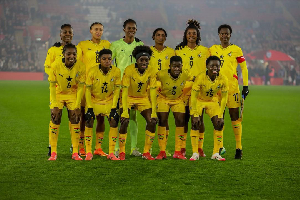The Upper East Regional Health Directorate has so far recorded 26 COVID-19 related deaths in the region since the first case of the virus was reported in April 2020.
Briefing the media in Bolgatanga, Dr Emmanuel Kofi Dzotsi, the Upper East Regional Director of the Ghana Health Service (GHS), called on the public to seek early medical attention for illnesses, especially COVID-19, from health facilities, to reduce the risks of death.
“One thing we noticed is that these deaths were caused by late reporting. So the media should inform the public that early reporting to the health facility saves lives because the virus keeps on multiplying very fast, if we don’t give you the supportive care."
“Maybe the patient needs oxygen, but stay at home and we are not able to give the oxygen, then it results in death. So let’s report early if we have fever, cough, difficulty in breathing, please report to the nearest health facility,” he said.
Dr Dzotsi disclosed that the Region had a cumulative total of 863 cases out of which 770 were treated and discharged.
As of February 11, the region had 67 active cases with 23 of them admitted at the treatment centre.
He explained that “Because we don’t have adequate number of treatment centres, we assess the homes of the respective confirmed cases and they do home isolation, while the case management teams follow them to make sure they are on their treatment.”
On the issues of COVID-19 testing centres in the Region, the Director said the Regional Hospital in Bolgatanga and the Navrongo Health Research Centre (NHRC) in the Kassena-Nankana Municipality were the designated centres for COVID-19 test.
He said with the two testing centres in the Region, it had improved the turnaround time for testing and plans were underway to beef-up treatment centres across the Region to augment the only treatment centre at the Regional Hospital.
“Every District has been mandated to have a treatment centre. The District and Municipal Chief Executives together with the District Health Management Teams are working hard to establish treatment centres at every District to reduce the load at the Regional Hospital.”
Dr Dzotsi said the major challenge was the compliance to the proper use of face masks among members of the public saying “Some put it on their chins and others in their pockets. The face masks must cover your nose and mouth, so that droplets from talking, laughter and cough will not come out to infect others.”
He expressed concern about crowding at public places, such as; markets as they sat close to each other in the market, with buyers also crowding without any adherence to the social distancing protocol.
He admonished market queens to re-structure the markets to reduce the congestion, “We can make everyday a market day so that the congestion associated with market days will be reduced.
“When specific days are declared as market days, that is when a lot of people come and the congestion increases. We need to have handwashing facilities at the market centres, supermarkets, lorry parks,” he said.
Regional News of Friday, 12 February 2021
Source: GNA













